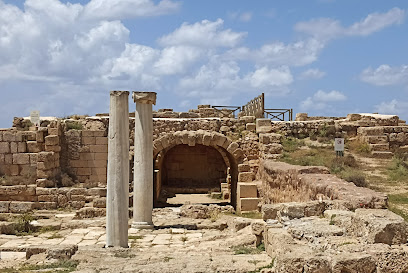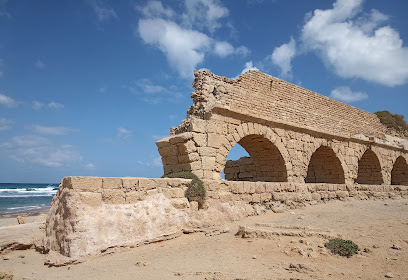
Caesarea National Park: A Journey Through Time and Beauty
Caesarea National Park, located along the Mediterranean coast of Israel, is a mesmerizing blend of history and natural beauty. This ancient port city, built by King Herod the Great, offers a unique glimpse into the grandeur of Roman architecture with its well-preserved amphitheater, aqueducts, and ruins. The park stands as a testament to the rich cultural tapestry that has shaped this region over millennia. Visitors can stroll through the archaeological remains of the ancient city, exploring the grandeur of the Roman and Byzantine periods. The amphitheater, often hosting performances, provides a perfect backdrop for witnessing a slice of history come alive. The hippodrome, with its chariot racing tracks, and the majestic Roman aqueducts, stretching along the beach, are must-see highlights that transport you back in time. Beyond its historic allure, Caesarea National Park is also a haven for nature lovers. The Mediterranean coastline offers pristine beaches where you can relax and soak up the sun. The underwater museum is a unique attraction for diving enthusiasts, allowing them to explore submerged ruins. With its blend of historical intrigue and coastal charm, Caesarea National Park is a destination that promises an unforgettable experience for every traveler.
Local tips in Caesarea National Park
- Visit early in the morning to avoid crowds and enjoy cooler temperatures.
- Bring a hat and sunscreen, as there is limited shade in the park.
- Check the schedule for performances in the amphitheater to enhance your visit.
- Don't miss the underwater museum if you're into diving; it's a unique way to explore the ruins.
- Carry water and snacks, as the park is expansive and facilities may be spread out.
Caesarea National Park: A Journey Through Time and Beauty
Caesarea National Park, located along the Mediterranean coast of Israel, is a mesmerizing blend of history and natural beauty. This ancient port city, built by King Herod the Great, offers a unique glimpse into the grandeur of Roman architecture with its well-preserved amphitheater, aqueducts, and ruins. The park stands as a testament to the rich cultural tapestry that has shaped this region over millennia. Visitors can stroll through the archaeological remains of the ancient city, exploring the grandeur of the Roman and Byzantine periods. The amphitheater, often hosting performances, provides a perfect backdrop for witnessing a slice of history come alive. The hippodrome, with its chariot racing tracks, and the majestic Roman aqueducts, stretching along the beach, are must-see highlights that transport you back in time. Beyond its historic allure, Caesarea National Park is also a haven for nature lovers. The Mediterranean coastline offers pristine beaches where you can relax and soak up the sun. The underwater museum is a unique attraction for diving enthusiasts, allowing them to explore submerged ruins. With its blend of historical intrigue and coastal charm, Caesarea National Park is a destination that promises an unforgettable experience for every traveler.
Iconic landmarks you can’t miss
Caesarea National Park
Uncover the rich history and natural beauty of Caesarea National Park, a stunning blend of ancient ruins and breathtaking Mediterranean views.
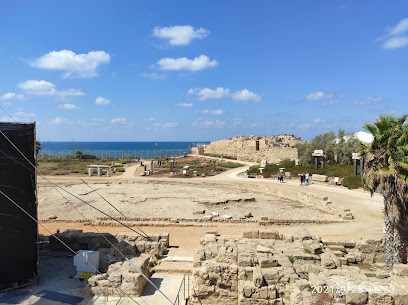
Caesarea Harbor
Explore the breathtaking Caesarea Harbor, an ancient port city rich in history, stunning views, and cultural heritage along the Mediterranean coast.
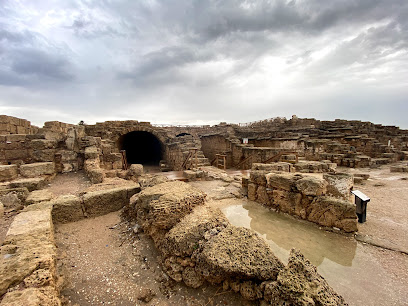
Roman Aqueduct
Explore the stunning Roman Aqueduct in Caesarea, a historical landmark showcasing ancient engineering and breathtaking coastal views.
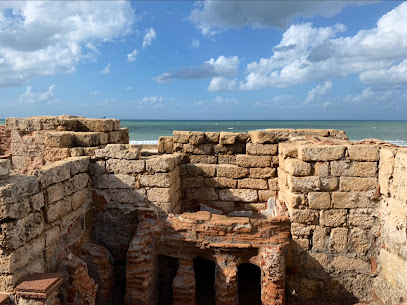
גן לאומי - נמל קיסריה
Explore the Israel National Trail in Caesarea, a spectacular blend of nature and history along the stunning Mediterranean coastline.
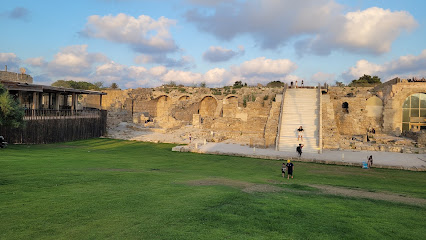
Quarry park
Discover the natural beauty and historical charm of Quarry Park in Caesarea, a tranquil haven for nature lovers and families alike.
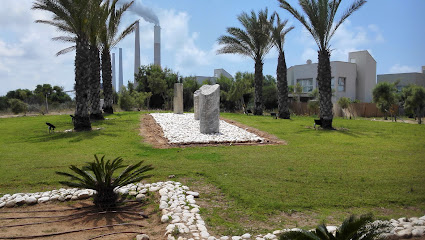
חוף עתיקות - נמל קיסריה
Experience the blend of ancient history and stunning beach views at Caesarea Port, a must-visit destination on Israel's Mediterranean coastline.
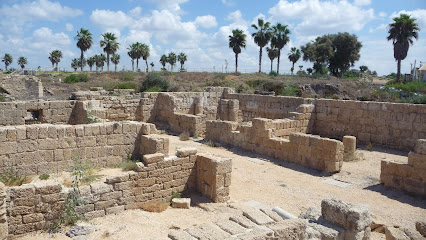
Castle
Discover the ancient wonders of Caesarea, where history, culture, and stunning coastal views come together in a breathtaking archaeological site.
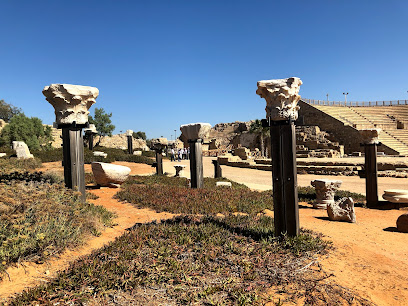
Caesarea Columns
Discover the awe-inspiring Caesarea Columns, a historical treasure showcasing ancient Roman architecture and breathtaking Mediterranean views.
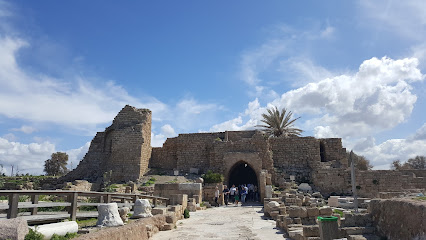
נמל קיסריה העתיק
Explore the ancient city of Caesarea, a UNESCO World Heritage site, featuring stunning ruins, vibrant culture, and breathtaking Mediterranean views.
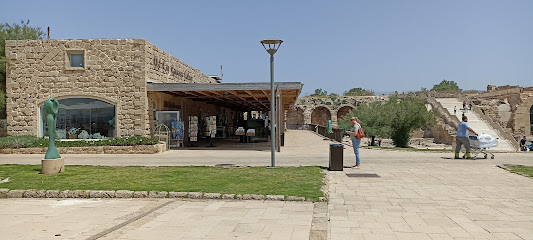
Caesarea Obelisk
Explore the grandeur of the Caesarea Obelisk, a historical landmark that narrates tales of ancient civilizations amidst stunning coastal views.
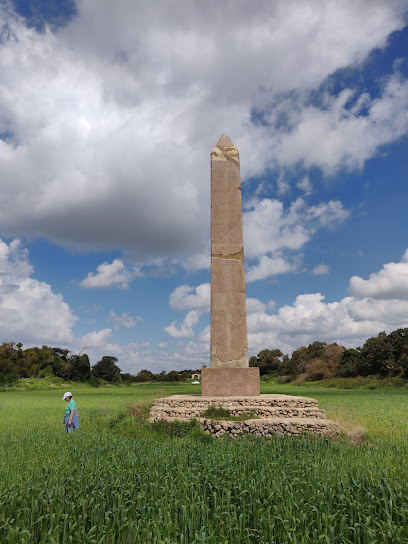
Unmissable attractions to see
Essential places to dine
Aresto
Discover Aresto in Caesarea: A perfect fusion of kosher Italian cuisine with stunning Mediterranean views.
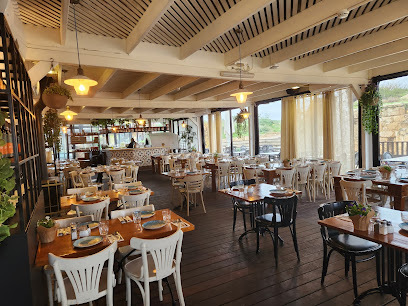
Mariposa
Experience exquisite dining at Mariposa in Caesarea, where gourmet cuisine meets stunning Mediterranean views.
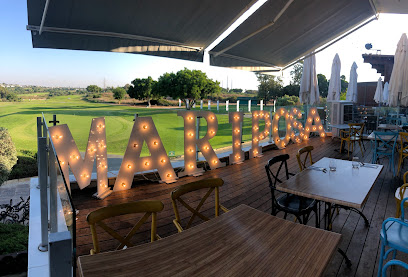
Port Cafe
Discover culinary delights at Port Cafe in Caesarea with stunning sea views and authentic kosher cuisine.
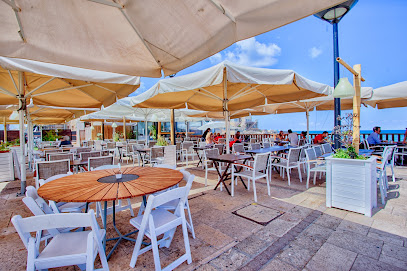
The Crusaders Restaurant
Experience exceptional kosher cuisine with breathtaking views at The Crusaders Restaurant in historic Caesarea.
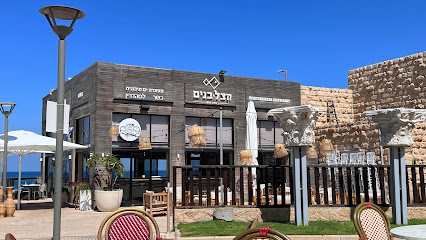
Hellena Restaurant Caesarea Harbor
Discover Mediterranean flavors at Hellena Restaurant in Caesarea Harbor—where exquisite cuisine meets stunning coastal views.
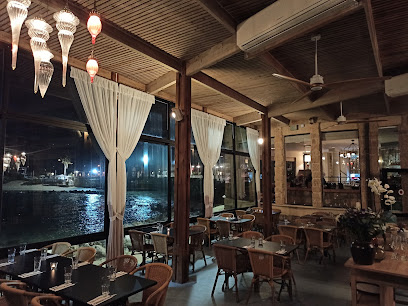
ג'מס קיסריה
Discover exquisite dining at Jems Caesarea, where local flavors meet culinary innovation in a charming coastal setting.
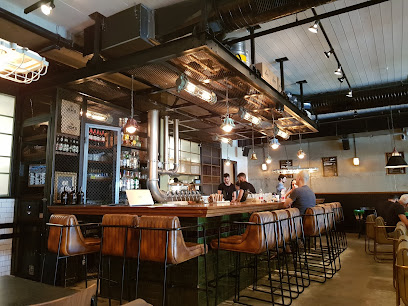
Limani Bistro
Experience exquisite Mediterranean cuisine at Limani Bistro in Caesarea harbor, where fresh seafood meets stunning waterfront views.
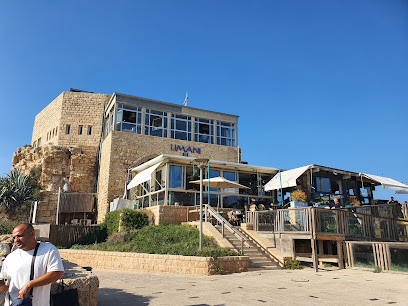
La Vita Bella
Discover La Vita Bella in Caesarea for exquisite ice cream and delicious pizza amid stunning historical landscapes.
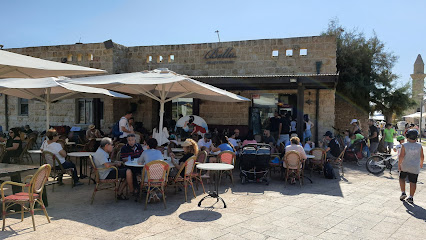
Kitchen Caesarea
Discover a culinary oasis at Kitchen Caesarea – where local flavors meet stunning Mediterranean views.
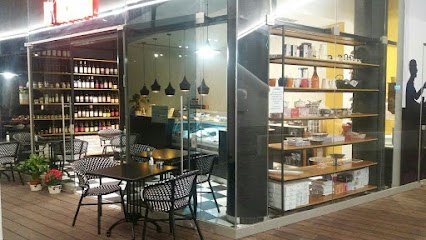
מזנון מרכז ימי
Discover a unique dining experience at מזנון מרכז ימי in Caesarea’s Maritime Center, where delicious cuisine meets stunning coastal views.
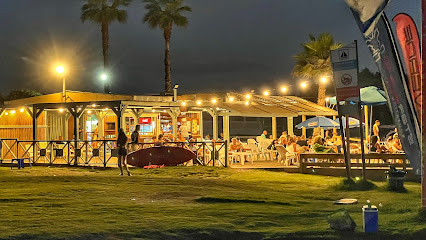
Markets, malls and hidden boutiques
Caesarea National Park
Explore the ancient ruins and stunning landscapes of Caesarea National Park, a captivating blend of history and nature on Israel's Mediterranean coast.
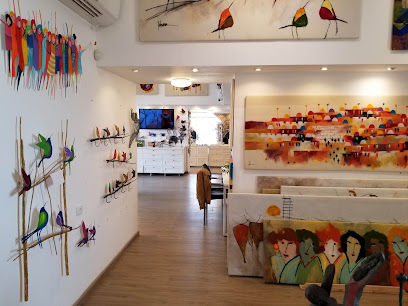
Caesarea Beach
Experience the beauty of Caesarea Beach, where sandy shores meet ancient history for an unforgettable coastal retreat in Israel.
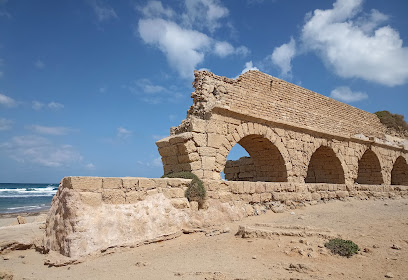
Caesarea Harbor
Explore the historical marvels and scenic beauty of Caesarea Harbor, a captivating destination steeped in ancient history and coastal charm.
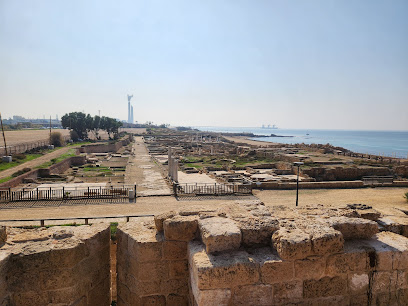
Politzer Caesarea
Discover the vibrant flavors of Israel at Politzer Caesarea, your one-stop supermarket for local and international delights.
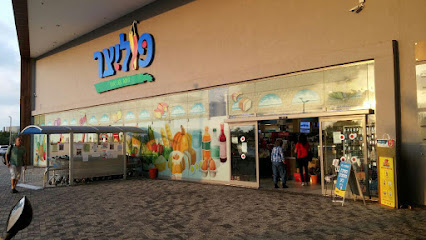
C Center
Discover C Center, Caesarea's vibrant shopping mall offering a blend of retail therapy, culinary delights, and family-friendly entertainment.
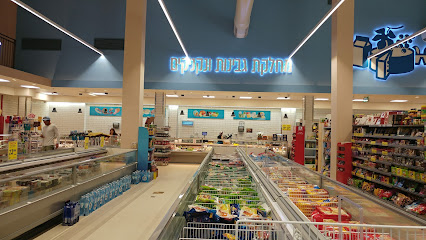
La Vita Bella
Discover La Vita Bella in Caesarea - a delightful ice cream and pizza haven that offers a taste of history and flavor by the Mediterranean.
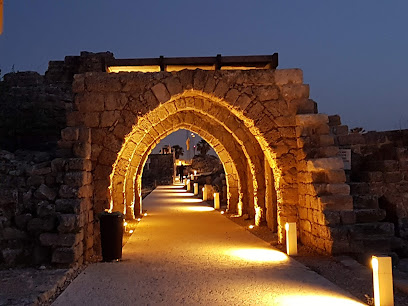
New Star
Explore New Star: Caesarea's top destination for quality sporting goods and expert advice, catering to all levels of athletes.
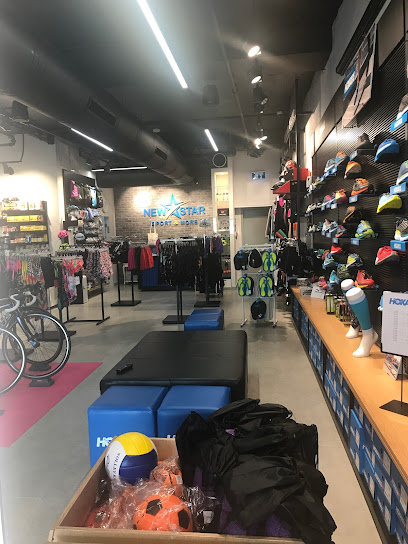
Caesarea Glass זכוכית קיסריה
Explore the captivating artistry of stained glass at Caesarea Glass, where creativity meets tradition in the heart of Israel's historic Caesarea.
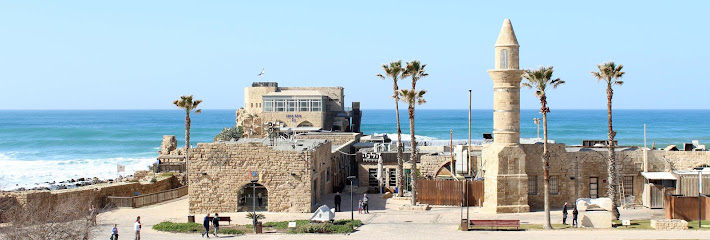
Draydel house
Explore Draydel House in Caesarea for unique crafts and souvenirs, where shopping meets the rich history of the ancient amphitheater.
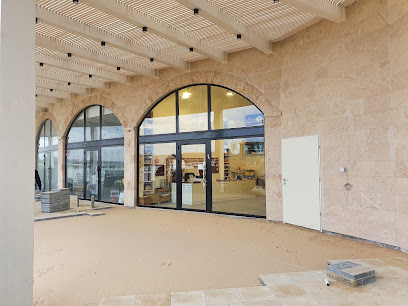
ChakaLaka
Discover the artistry of unique costume jewelry at ChakaLaka in Caesarea, where local craftsmanship meets exquisite design.

Essential bars & hidden hideouts
Aresto
Discover Aresto in Caesarea: A delightful kosher Italian restaurant offering a unique culinary experience by the Mediterranean coast.
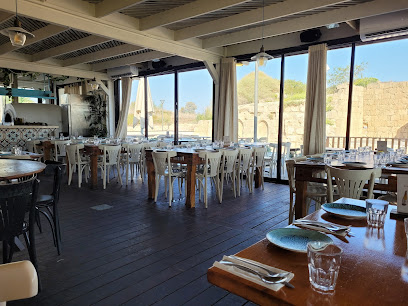
Mariposa
Experience exquisite dining at Mariposa in Caesarea, where culinary artistry meets breathtaking views for an unforgettable meal.
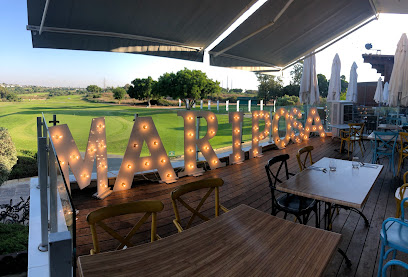
Port Cafe
Discover the culinary delights of Port Cafe in Caesarea, where kosher cuisine meets stunning Mediterranean views for an unforgettable dining experience.
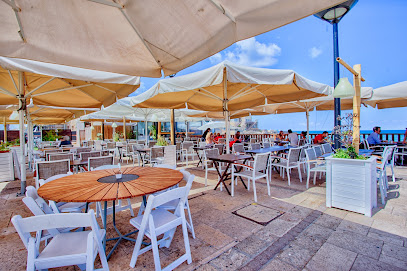
The Crusaders Restaurant
Experience the rich flavors of kosher and Israeli cuisine at The Crusaders Restaurant in historic Caesarea, a must-visit for every traveler.
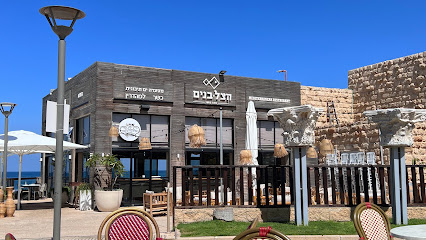
Hellena Restaurant Caesarea Harbor
Experience the Mediterranean flavors at Hellena Restaurant, where exquisite cuisine meets stunning views of Caesarea Harbor.
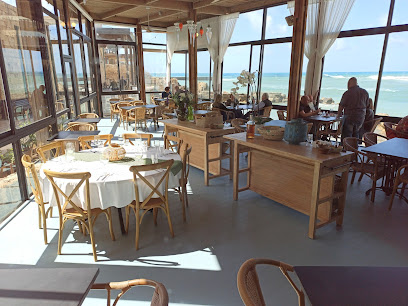
ג'מס קיסריה
Experience the vibrant flavors of Israeli cuisine at ג'מס קיסריה, a culinary gem in the historic region of Caesarea.
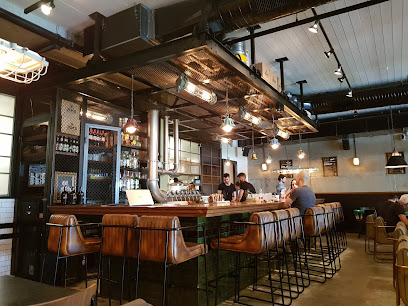
Beach Bar נמל קיסריה
Experience the lively atmosphere and breathtaking views at Beach Bar נמל קיסריה, where the Mediterranean meets relaxation.
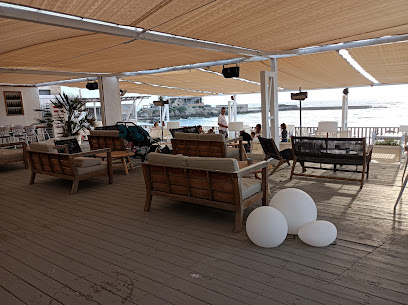
Limani Bistro
Discover the essence of Mediterranean cuisine at Limani Bistro in Caesarea, offering fresh seafood and breathtaking views of the port.
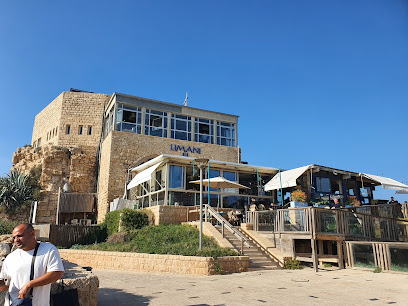
קפה בגולף - caffe bagolf
Discover the delicious charm of Caffe Bagolf in Caesarea, where every breakfast and coffee blend is crafted to perfection amidst stunning views.
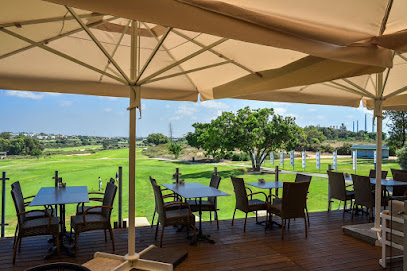
La Vita Bella
Experience the delightful flavors of Italy at La Vita Bella in Caesarea, where delicious ice cream meets gourmet pizza in a historic setting.
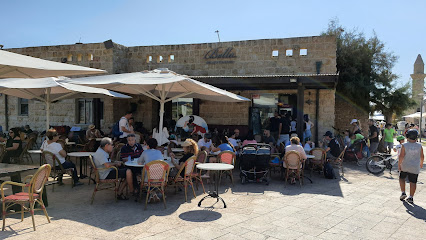
Local Phrases
-
- Helloשָׁלוֹם
[Shalom] - Goodbyeלְהִתְרָאוֹת
[Lehitraot] - Yesכֵּן
[Ken] - Noלֹא
[Lo] - Please/You're welcomeבְּבַקָּשָׁה
[Bevakasha] - Thank youתוֹדָה
[Toda] - Excuse me/Sorryסְלִיחָה
[Slicha] - How are you?אֵיך אַתָּה?
[Eich Ata?] - Fine. And you?טוֹב. וְאַתָּה?
[Tov. Ve'ata?] - Do you speak English?הֲאַתָּה מְדַבֵּר אַנְגְלִית?
[Ata medaber Anglit?] - I don't understandאֲנִי לֹא מֵבִין
[Ani lo mevin]
- Helloשָׁלוֹם
-
- I'd like to see the menu, pleaseאֲנִי רוֹצֶה לִרְאוֹת אֶת הַתַפְרִיט, בְבַקָּשָׁה
[Ani rotse lirot et hatafrit, bevakasha] - I don't eat meatאֲנִי לֹא אוֹכֵל בָּשָׂר
[Ani lo ochel basar] - Cheers!לְחַיִּים!
[Lachaim!] - I would like to pay, pleaseאֲנִי רוֹצֶה לְשַׁלֵּם, בְבַקָּשָׁה
[Ani rotse leshalem, bevakasha]
- I'd like to see the menu, pleaseאֲנִי רוֹצֶה לִרְאוֹת אֶת הַתַפְרִיט, בְבַקָּשָׁה
-
- Help!עֶזְרָה!
[Ezra!] - Go away!לְךָ אָחוֹר!
[Lecha achor!] - Call the Police!קְרָא לַמִּשְׁטָרָה!
[Kra lamishtara!] - Call a doctor!קְרָא לַרוֹפֵא!
[Kra larofe!] - I'm lostאֲנִי אָבוּד
[Ani avud] - I'm illאֲנִי חוֹלֶה
[Ani holeh]
- Help!עֶזְרָה!
-
- I'd like to buy...אֲנִי רוֹצֶה לִקְנוֹת...
[Ani rotse liknot...] - I'm just lookingאֲנִי רַק צוֹפֶה
[Ani rak tzofeh] - How much is it?כַּמָה זֶה עוֹלֶה?
[Kama ze ole?] - That's too expensiveזֶה יָקָר מִדַי
[Ze yakar midai] - Can you lower the price?אַתָּה יָכוֹל לְהוֹזִיל אֶת הַמְחִיר?
[Ata yachol lehozil et hamachir?]
- I'd like to buy...אֲנִי רוֹצֶה לִקְנוֹת...
-
- What time is it?כַמָה הַשָּׁעָה?
[Kama hasha'a?] - It's one o'clockהִיא שְׁמוֹנָה
[Hi shmona] - Half past (10)מֵאַחַר חֶצִי (עֶשֶׂר)
[Meachar chatzi (eser)] - Morningבֹּקֶר
[Boker] - Afternoonצָהֳרַיִים
[Tzohorayim] - Eveningעֶרֶב
[Erev] - Yesterdayאֶתְמוֹל
[Etmol] - Todayהַיוֹם
[Hayom] - Tomorrowמָחָר
[Machar] - 1אֶחָד
[Echad] - 2שְׁנַיִם
[Shnayim] - 3שָׁלשָׁה
[Shaloshah] - 4אַרְבָּעָה
[Arba'ah] - 5חֲמִשָּׁה
[Chamishah] - 6שִׁשָּׁה
[Shishah] - 7שִׁבְעָה
[Shiv'ah] - 8שְׁמוֹנָה
[Shmona] - 9תִּשְׁעָה
[Tish'ah] - 10עֶשֶׂר
[Eser]
- What time is it?כַמָה הַשָּׁעָה?
-
- Where's a/the...?אֵיפֹה יֵשׁ...
[Eifo yesh...] - What's the address?מַה הַכְּתוֹבֶת?
[Ma haketovet?] - Can you show me (on the map)?אַתָּה יָכוֹל לְהַרְאוֹת לִי (עַל הַמַפָּה)?
[Ata yachol leharot li (al hamapa)?] - When's the next (bus)?מָתַי הַאָבוֹס הַבַּא?
[Matai haavos haba?] - A ticket (to ....)כַרְטִיס (לְ....)
[Kartis (le....)]
- Where's a/the...?אֵיפֹה יֵשׁ...
History of Caesarea National Park
-
Caesarea was founded by King Herod the Great in 25 BCE and named in honor of Augustus Caesar. Herod transformed a small fishing village into a bustling city and port, complete with a magnificent harbor, temples, and a palace, establishing Caesarea as a major center of trade and culture in the region.
-
During the Roman and Byzantine periods, Caesarea flourished as a significant urban center. It became the capital of the Roman province of Judea and was known for its impressive architecture, including the Roman theater, amphitheater, and aqueducts. The city also became a hub for early Christianity and was the site of the first Gentile conversion, as recorded in the Acts of the Apostles.
-
In the 12th century, Caesarea fell into the hands of the Crusaders, who restored many of the ancient structures and fortified the city. They built a stronghold, which included impressive walls and towers. This period saw a cultural exchange between the Crusaders and the local population, influencing the city's architecture and society.
-
After the Crusaders, Caesarea was conquered by the Mamluks and later the Ottomans. Under Ottoman rule, the city experienced a decline, as trade routes shifted and the population dwindled. The once-thriving port fell into disrepair, and the ruins became a testament to its former glory.
-
In the 19th and 20th centuries, archaeological excavations brought Caesarea back into the limelight. The site revealed a wealth of artifacts and structures from its illustrious past, including the remains of the harbor, mosaics, and various public buildings. Today, Caesarea National Park showcases these archaeological treasures, attracting tourists and historians alike.
Caesarea National Park Essentials
-
Caesarea National Park is conveniently located along the Israeli coastline, approximately halfway between Tel Aviv and Haifa. The nearest train station is in Binyamina, which is about 5 kilometers away. From Binyamina, you can take a taxi or a local bus (Egged Line 5) directly to the park. If you are driving, the park is easily accessible via Highway 2, with ample parking available on-site.
-
Once inside Caesarea National Park, the best way to explore is on foot. The park covers a large area, and most attractions are within walking distance of each other. Bicycles are available for rent at nearby locations, making it easier to cover more ground. Public transportation options include buses that connect to nearby towns, but for convenience, consider using taxis or rideshare services.
-
Caesarea National Park is generally safe for tourists. However, standard safety precautions should be observed. Avoid isolated areas after dark and keep an eye on your belongings, especially in crowded places. While Caesarea is a low-crime area, petty theft can occur, so remain vigilant. It's advisable to stay within well-lit and populated areas during your visit.
-
In case of an emergency in Caesarea, dial 100 for police, 101 for medical emergencies, and 102 for fire services. The nearest hospital is located in nearby Hadera. Ensure you have travel insurance that covers medical emergencies. For minor health issues, local pharmacies are available for over-the-counter medications.
-
Fashion: Do wear comfortable shoes suitable for walking, as the park involves extensive walking on uneven surfaces. Don't wear inappropriate clothing when visiting religious sites. Religion: Do be respectful of local customs and practices. Public Transport: Do follow local etiquette and give up your seat to those in need. Don't eat or drink in public transport. Greetings: Do greet with a smile and a friendly nod. Eating & Drinking: Do enjoy local cuisine at nearby restaurants. Don't litter or leave food remnants in the park.
-
To experience Caesarea National Park like a local, consider visiting the archaeological site early in the morning to avoid crowds. Engage with the park's rangers, who often share fascinating stories about the site's history. Don't miss the sunset views over the Mediterranean from the ancient harbor; it's a breathtaking experience. For a taste of local life, explore the nearby town of Caesarea, where you can find charming cafes and shops.
-
Caesarea National Park is open daily, with hours varying by season. Typically, the park opens at 8:00 AM and closes at 5:00 PM, while during summer months, it may remain open until 6:00 PM. It is advisable to check the official park website for the most current information regarding hours and any special events.
-
There is an entrance fee to Caesarea National Park, which varies for adults, children, and seniors. Discounts may apply for Israeli citizens and residents. Payment can typically be made at the entrance using cash or credit cards. Consider purchasing a combination ticket if you plan to visit additional sites managed by the Israel Nature and Parks Authority.
Nearby Cities to Caesarea National Park
-
Things To Do in Hadera
-
Things To Do in Zikhron Ya'akov
-
Things To Do in Netanya
-
Things To Do in Haifa
-
Things To Do in Ra'anana
-
Things To Do in Raanana
-
Things To Do in Kfar Saba
-
Things To Do in Herzliya
-
Things To Do in Hod Hasharon
-
Things To Do in Nazareth
-
Things To Do in Tel Aviv
-
Things To Do in Ramat Gan
-
Things To Do in Akko
-
Things To Do in Acre
-
Things To Do in Jaffa








